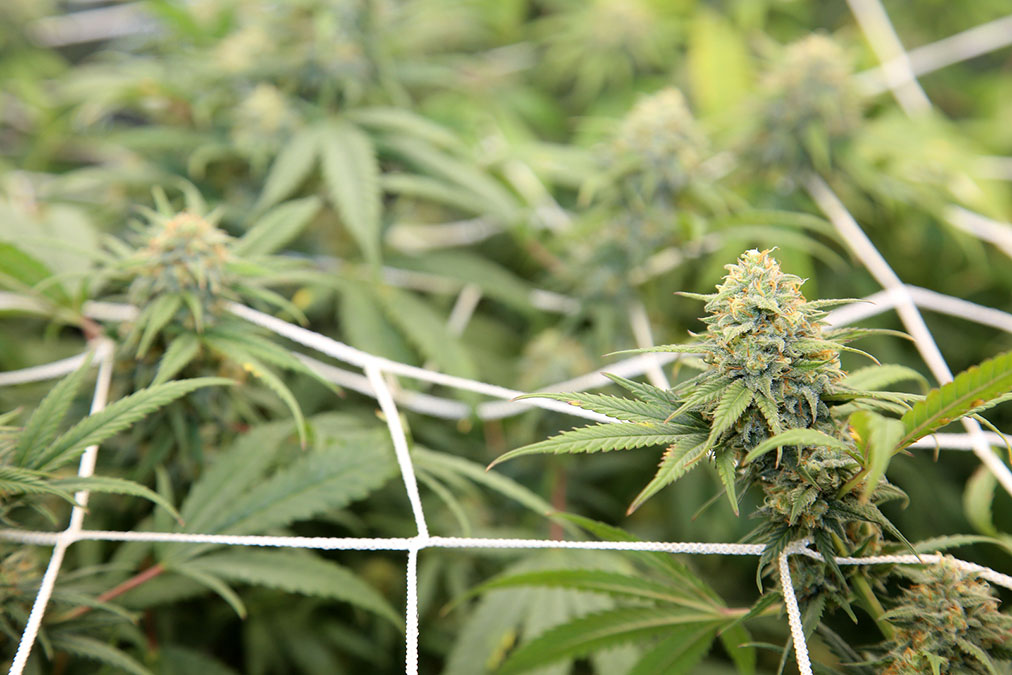 This herb has been proven to improve and even cure several serious diseases.
This herb has been proven to improve and even cure several serious diseases.
Next in line: dementia!
Because three recent studies have proved that this herb can halt and even reverse Alzheimer’s and other forms of dementia.
There is only one problem: this herb is illegal in most places.
All three studies had approximately the same structure.
Throughout your body, you have things called type 2 cannabinoid receptors. Many diseases occur because these receptors are too inactive. If we want to treat these diseases, we must do something to stimulate and energize these receptors.
Fortunately, there is a natural substance that stimulates these receptors. It is called cannabis. This is the fact on which most arguments for medical marijuana rest.
The three new studies all demonstrate that activation of these type 2 cannabinoid receptors can treat Alzheimer’s disease and dementia.
Study 1: Alzheimer’s Reversed.
In the first, published in Pharmacology Biochemistry and Behavior, Indian researchers tested the ability of 1-phenylisatin, a type 2 cannabinoid receptor agonist, to ameliorate the symptoms of Alzheimer’s disease.
They first induced Alzheimer’s disease in rats, after which they verified that the rodent’s memories were indeed compromised by observing their efforts to learn the route through a maze.
The researchers then gave the rodents the 1-phenylisatin, which activated the rodent’s type 2 cannabinoid receptors. The researcher’s subsequent tests revealed that the rat’s memories and executive function improved, that the oxidative stress in their brains reversed, and that the progressive physical brain damage halted and even reversed.
Study 2: Vascular Dementia Reversed.
In the second study, published in the journal Current Neurovascular Research, scientists targeted vascular dementia, the second most common form of dementia, behind Alzheimer’s disease.
They tried to attack the chronic cerebral hypoperfusion that gives rise to vascular dementia. Vascular dementia occurs when there is an insufficient blood supply to the brain, and chronic cerebral hypoperfusion is a condition wherein blood supply to the brain is inadequate.
Once again, the researchers induced chronic cerebral hypoperfusion in rats to cut off the blood supply to their brains. This was soon followed by vascular dementia, which they again verified through maze memory tests and executive function, or decision-making, tests, which the rats predictably failed.
The researchers then injected the rats with 1-phenylisatin to stimulate their cannabinoid receptors. As with the Alzheimer’s disease sufferers in the first study, the rat’s memories and executive function improved, and there was also a significant reduction in the physical and chemical brain damage brought about by the disease.
Study 3: Advanced Alzheimer’s Reversed.
Researchers in the third study, published in the Journal of Alzheimer’s Disease, actually administered THC and CBD, the two main components of cannabis, to mice with dementia. They expected that it would reverse memory loss for mice with early dementia but possibly not for mice with advanced dementia.
They were pleasantly surprised to find that it did improve the memory of the mice with advanced dementia too, even though it could not reverse as much of the physical brain damage as it could for the mice with early-stage dementia.
There are just two problems:
1) Cannabis is illegal in most places in the world.
2) You may not want to get high on cannabis.

 Multiple Sclerosis
Multiple Sclerosis Banishing Bronchitis
Banishing Bronchitis Gum Disease Gone
Gum Disease Gone Overcoming Onychomycosis
Overcoming Onychomycosis Neuropathy No More
Neuropathy No More The Prostate Protocol
The Prostate Protocol Brain Booster
Brain Booster
 Ironbound
Ironbound
 Solution for Shingles
Solution for Shingles
 The Bone Density Solution
The Bone Density Solution
 The Ultimate Healing Protocol
The Ultimate Healing Protocol
 The Parkinson's Protocol
The Parkinson's Protocol
 The Chronic Kidney Disease Solution
The Chronic Kidney Disease Solution
 Overthrowing Anxiety
Overthrowing Anxiety The Fatty Liver Solution
The Fatty Liver Solution The Hypothyroidism Solution
The Hypothyroidism Solution
 The End of Gout
The End of Gout The Blood Pressure Program
The Blood Pressure Program
 The Oxigized Cholesterol Strategy
The Oxigized Cholesterol Strategy
 Stop Snoring And Sleep Apnea Program
Stop Snoring And Sleep Apnea Program
 The Arthritis Strategy
The Arthritis Strategy The Vertigo & Dizziness Program
The Vertigo & Dizziness Program The 3-Step Diabetes Strategy
The 3-Step Diabetes Strategy Hemorrhoids Healing Protocol
Hemorrhoids Healing Protocol The Erectile Dysfunction Master
The Erectile Dysfunction Master Weight Loss Breeze
Weight Loss Breeze The IBS Program
The IBS Program The Insomnia Program
The Insomnia Program The Migraine and Headache Program
The Migraine and Headache Program The Neck Pain Solution
The Neck Pain Solution The Menopause Solution
The Menopause Solution The Ejaculation Master
The Ejaculation Master The TMJ Solution
The TMJ Solution The Acid Reflux Solution
The Acid Reflux Solution The Fibromyalgia Solution
The Fibromyalgia Solution The Psoriasis Strategy
The Psoriasis Strategy